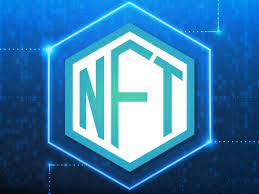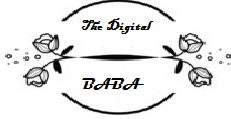
You might wonder why you’ll need to establish an NFT marketplace. Since the introduction of NFTs in 2014, the NFT industry has undergone a significant transformation, with numerous upgrades and developments to its ecosystem. Corporate entities, as well as private citizens, have already developed their NFT ventures. Over the past two years, NFTs have sold for astronomical prices. Good examples include:
- The initial tweet was purchased for $2.9 million.
- NFTs called The Merge sold for $91.8 million.
- “Beeple” sold for $69.3 million during the first 5000 days.
Since then, NFTs have become very well-known, which has enabled blockchain technology to advance and bring the metaverse online. NFT enthusiasts developed and used a large number of NFT marketplaces.
More NFT marketplaces are necessary to meet market demand, as the number of NFT projects will rise significantly by the end of 2022. Risingmax Inc. is an NFT game development company specializing in creating games using cutting-edge technologies for the mobile games market.
This article offers a comprehensive overview of developing an NFT marketplace in 2023.
What exactly is an NFT market?
The tokenizable cryptographic assets known as NFTs give the creator permanent ownership. Anything that can be converted into digital formats, such as audio clips, video files, images, collectibles, etc., can be considered one of these assets.
These digital assets are stored in a blockchain and have recorded, unchangeable ownership. NFTs, unlike cryptocurrencies, cannot be traded for one another because each token has a different value based on its particular characteristics and attributes. Several features distinguish NFTs:
- NFTs can be different in terms of value. As a result, exchanging one NFT for another is not possible.
- Genuineness: Every NFT has a proprietor. Blockchain allows for the determination of ownership.
- Each NFT is integral and cannot be broken up into smaller parts.
- Uniqueness: Every NFT is original. A special value and collection of metadata establish its individuality.
- NFTs are located within a blockchain.
As a result, an NFT marketplace is an online marketplace created with blockchain technology and used for lending, borrowing, and buying Non-Fungible Tokens. Users of NFT marketplaces can upload a token, set a starting price, and generate revenue by selling their artwork or collectibles. For NFT markets, there are two viable models:
- Centralized: A person or a private company owns centralized NFT markets. These exchanges operate under corporate control and mint, trade, and bid NFTs. The cost of the service is doubled because intermediary services are required to digitalize the assets and validate each transaction.
- Decentralized: Decentralized NFT marketplaces operate on an immutable, traceable blockchain network. To authenticate each transaction and the events of the traders, they require decentralized authorities.
Additionally, there are two different types of NFT marketplaces, each of which serves a crucial purpose:
- The NFT projects are initially sold on primary markets following their launch. Like the most well-known NFT marketplaces like Crypto Kitties, Axie Infinity, etc., the creators/artists run this platform.
- After the creation of NFTs, traders are permitted to buy and sell on secondary markets. Blue-chip secondary market platforms include OpenSea, Rarible, Foundation, Crypto.com, etc.
How does a market for NFT operate?
It is crucial to comprehend how NFT marketplaces operate before learning how to build one.
The workflow is typically the same across NFT marketplaces. The steps consist of:
- To store and manage their NFTs, customers must register an account and link a supported digital wallet.
- Customers can purchase and sell NFTs at fixed prices or through auctions. Some marketplaces even permit buyers and sellers to communicate, place offers, and haggle over a price.
- Selling an NFT: Users may sell the NFTs they have created and the NFTs they have previously purchased (artwork, a tweet, a song, etc.). The asset is listed for sale after the platform verifies and approves it. Users must upload digital assets to a marketplace, set a price, and select whether to sell the NFT in an auction or for a fixed price. The marketplace transfers payment for the NFT from buyer to seller when the item sells.
Models of NFT market revenue
The revenue model is the most crucial component of business development. It is essential for managing a profitable NFT market. The following costs are typically included in NFT marketplaces:
- Development costs: Setting up a successful business requires professional assistance. The price to hire an assistant to customize your project will vary depending on your task’s complexity.
- Coinage costs: Since no minting equals no NFTs, it is unavoidable. The process of minting involves converting physical assets into a digital format for use with blockchain technology. Therefore, to successfully build your NFTs on the platform, you must pay minting fees.
- Hosting Fees: These fees apply to the central NFT markets. When using centralized NFT platforms, the user is responsible for covering the marketplace’s hosting costs. They include all fees associated with the creation, exchange, and validation of the NFTs. The size of the market might influence them.
- Costs associated with marketing: Promoting NFT marketplaces to users is crucial. Due to the various channels used for promotional activities, they are constantly changing.
- Costs of transactions Or Gas fees are the costs incurred by the user for the energy expended in validating the trades of NFTs. Every marketplace has a different transaction fee.
- Listing costs: The platforms list the available NFT collections. They fluctuate based on the market, just like the gas tax. All of the mountaineering NFTs are categorized using this listing. For instance, under NFTs for Music, you can find audio NFTs.
Choose a niche
The type of market must be decided upon when creating an NFT marketplace. There is no restriction on the kinds of NFT marketplaces you can build. You can select one of the pre-existing types or develop a completely original idea. The following are the most common NFT market types:
NFT marketplaces for art
These marketplaces let users trade their works of art, as the name implies. There are two categories of art NFT marketplaces:
- Open art markets where anyone can sell their creations. As a result, you have no control over the caliber and type of artwork displayed there.
- Curated or invite-only marketplaces cater to a particular clientele, such as those seeking unusual artwork. Artists must undergo a selection process to sell their works of art in these marketplaces. SuperRare, a marketplace that collaborates with hand-picked top concept artists, is a great example.
NFT markets for games
These markets are closely related to the game that goes along with them. NFTs, which are minted or given as prizes in competitions and represent various characters or objects, can be purchased or sold by users. The NFT marketplace serves as a middleman between buyers and sellers while ensuring a secure transaction.
NFT marketplaces for sports
These NFT marketplaces specialize in buying, selling, trading, and collecting NFTs associated with the sports sector. A sports NFT marketplace may be good if you enjoy collecting sports cards.
Markets for NFT in mass
There are no restrictions on what users can sell on these marketplaces. A mass NFT marketplace allows for trading a variety of NFTs, including works of art, memes, music, video clips, gaming items, and other collectibles. Additionally, there are some of the most creative ideas to be found.
NFT marketplaces for e-learning
They permit the sale of online education products and services like lessons, courses, and curated programs.
NFT investment markets
These markets allow trading in assets and operate as stock markets. They must legally issue valid purchases with proprietary rights, shares, and dividends, just like conventional investment solutions.
NFT real estate markets
It is time to tokenize existing homes and sell them as NFTs, with the buyer gaining ownership rights. Users can also buy and sell digital homes or land. Upon acquiring an asset, buyers can sell it to another buyer, build a house on the virtual ground, or both. An excellent illustration of such an NFT market is Decentraland.
Engage a company to develop your NFT marketplace.
Your NFT marketplace will undoubtedly require the assistance of a software or mobile app development company if you want to make it faster. You will only have a few options, depending on the size of your marketplace: hire a freelancer, an internal developer, or an NFT marketplace development company. Please select the best choice for your NFT applications and websites, then explain to them your idea for an NFT marketplace.
Have a feature list of your own
There are some fundamental features that all NFT marketplaces have in common and some extra features that will set your marketplace apart from rivals. In an NFT marketplace, like any other app, features like sign up and sign in, user profiles, settings, and notifications are essential. It is necessary to have a storefront where all the NFTs being sold on the platform can be seen, along with information about their prices, offers, owners’ backgrounds, item activity, and other facts.
Another crucial component of an NFT platform is the search system, which includes several filters to focus the search and advanced features like typo tolerance, predictive search, voice search, personalized search powered by AI, etc. Additionally, categories and filters must be offered.
The selling and buying model is also crucial and should be unrestricted to set prices. You must have the bidding and auction features on your platform. Be cautious when listing NFTs and thinking about secure digital wallets.
UI/UX design work
Gaining devoted users for your NFT marketplace depends largely on how well your user interface (UI) and user experience (UX) designs are executed. Choosing UI/UX designs that are user-friendly and simple to use is important.
In the NFT market, UX offers an efficient user flow. Users can easily navigate the platform screens thanks to it. No matter their level of technical expertise, all users should be able to understand the reasoning behind each action.
On the other hand, the user interface (UI), which is the first thing users see when they join the marketplace, supports the app’s functionality. The success of your project depends on its first impression.
Therefore, before beginning the design, it is essential to research your target audience, their needs, and their preferences. The idea is that the NFT marketplace platform’s design should live up to user expectations.
Development of the front and smart contracts
Once your NFT market design is complete, you must use frontend development to meet your creative needs. You must use smart contracts for the backend development of your NFT marketplace now that the frontend portion is complete.
Keep in mind that NFT marketplaces can have very different backends. Blockchain is used to authenticate all data in a decentralized NFT marketplace. Your platform’s blockchain is necessary for smart contracts to function. To create smart contracts, hire experienced developers.
Test, and prepare to launch the NFT market
You check your marketplace at this stage to ensure there are no bugs and that users can interact with it without any issues. The marketplace can only be made available to the public after every platform component has been thoroughly tested.
It would help if you were cautious about marketing your marketplace as it goes live and collecting user feedback. Promotion should begin long before the newly created NFT marketplace is made public. While developing your concept, enlist the help of influencers to spread the word about it, post updates on social media, and extend invitations to users to test it out. To get there, employ marketing channels, paid advertisements, influencer marketing, alliances, and other tactics.
Monitor user comments in the interim. It would help if you comprehended what they appreciate about the NFT marketplace, what they feel is missing, and how they would like to improve the platform.
Finally, make plans for additional growth and assistance.
You can decide how to enhance and expand your NFT marketplace using the earlier feedback you gathered. An NFT marketplace’s development is an ongoing process that necessitates the owner to keep improving its usability, effectiveness, and scalability even after it has gone live.
Important Considerations for the Development of the NFT Market
You must remember a few essential principles when developing an NFT marketplace: your platform must be safe, open, and decentralized.
The market’s security is crucial, so you must choose cloud security solutions to safeguard confidential information.
Transparency is the absence of unexpected errors in the payment process. With blockchain technology, you can easily manage your cryptocurrency transactions and get a clear picture of each transaction on your NFT platform.
Lastly, decentralization emphasizes the need for multiple locations to store transaction data. Decentralization aids in preventing data loss in the event of fraud or hacking. It is advised to make a copy of the data and distribute it among network machines.
Conclusion
NFT marketplaces are embracing the latest digital market hype. Non-Fungible Tokens are becoming increasingly popular, and the number of NFT collections is astronomically rising. As a result, NFT-based platforms are very profitable, encouraging more people and businesses to launch their NFT marketplaces. We are an NFT token development company specializing in developing games using cutting-edge innovations.
Before taking any further action toward creating your NFT marketplace, our team advises that you educate yourself on all issues relating to the NFT market and seek the advice of crypto and NFT experts. Best of luck to you!


